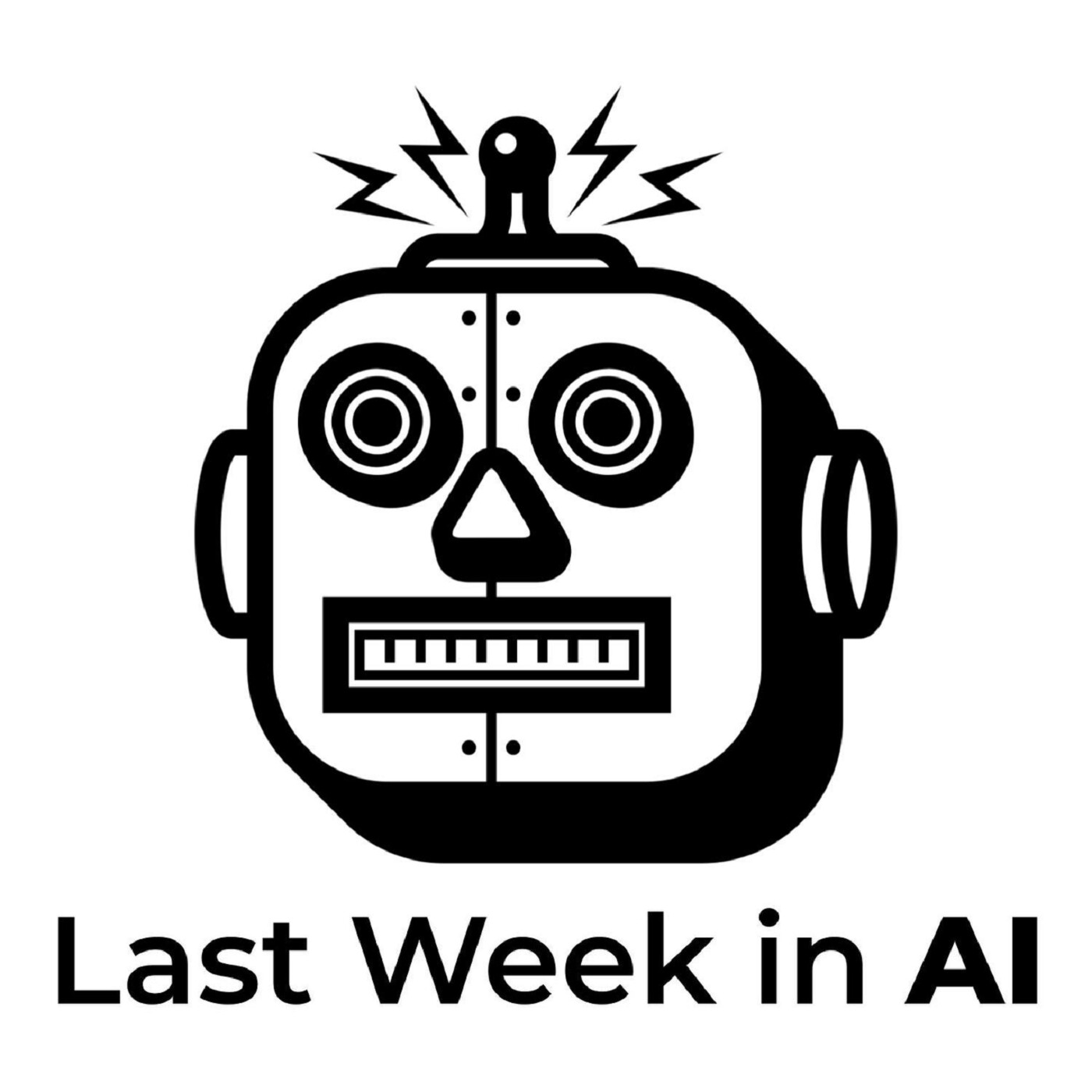

Last Week in AI
Skynet Today
Weekly summaries of the AI news that matters!
Episodes
Mentioned books

9 snips
Apr 12, 2021 • 59min
The Pioneers of Modern AI with Cade Metz, author of "Genius Makers"
Cade Metz, a New York Times reporter and author of "Genius Makers," dives into the intriguing world of AI pioneers. He shares humorous anecdotes about key figures like Jeff Hinton, revealing the unexpected personalities driving innovation. The conversation also tackles Silicon Valley's competitive landscape and how companies must adapt or risk obsolescence. Metz discusses the collaborative nature of AI development while reflecting on the ethical dilemmas and biases that permeate the field, highlighting the delicate balance between corporate goals and idealism.

Apr 11, 2021 • 32min
Boston Dynamics, DeepFake Amazon Workers, Systematic Labeling Errors
This week explores the cutting-edge advancements at Boston Dynamics, showcasing robots designed for logistics. A dramatic shift at Google’s AI research division raises questions about the future direction of ethical AI. Deepfake profiles advocating for Amazon stir controversy amid labor negotiations. An MIT study sheds light on systematic labeling errors in AI datasets, calling into question their reliability and impact. The conversation also touches on the potential of AI to fund universal basic income, linking automation to societal change.

Mar 11, 2021 • 34min
AI Growth, OpenAI's Smart Neurons, Disease Sniffing AI
Discover the latest trends in AI growth despite the pandemic, with insights from the 2021 AI Index. Dive into groundbreaking research on multimodal neurons and their ability to process diverse inputs. Explore the controversial role of AI in beauty assessment, raising ethical questions about societal standards. Finally, learn about innovative AI systems that can sniff out diseases as effectively as dogs, opening new doors in healthcare technology.

Mar 9, 2021 • 25min
GPT-3 NPCs, Rebel AI Startups, A Cute AI Book
Discover how GPT-3 is revolutionizing non-player characters in video games, allowing for real-time, dynamic interactions. A group of startups is forming a 'rebel alliance' to promote interoperability in AI technology. The potential for AI in training counselors to support teens in crisis is also explored. Plus, check out a charming book that introduces AI concepts to children without any dystopian fears. Dive into these fascinating developments and their implications for the future!

Feb 26, 2021 • 27min
More Unethical AI Research, More Google Drama, More Clearview AI
A recent incident raised eyebrows when an academic became a co-author on an AI research paper without consent, sparking concerns over integrity. Clearview AI's invasive facial recognition technology is stirring debates about ethics and regulatory oversight. Meanwhile, a breakthrough AI gadget promises to revolutionize the hearing aid market. In the corporate arena, Google undergoes a leadership shake-up in its AI division amid controversies, questioning its commitment to ethics while discussing the future of responsible AI.

Feb 18, 2021 • 24min
AI Against COVID 19, Regulating DeepFake Porn, the State of Self Driving Cars
A Georgia startup is racing to launch an AI-powered voice tool aimed at detecting COVID-19, sparking discussions about its accuracy and potential benefits. Meanwhile, the troubling rise of deepfake porn continues to be a concern for women's safety, prompting calls for legal reforms. The podcast also delves into the dual nature of AI, highlighting its role in scientific innovation while addressing significant ethical issues. Lastly, it examines the future of self-driving cars, focusing on hardware challenges and the development of robot taxis.

Feb 11, 2021 • 25min
Facial Recognition and Privacy, Amazon AI Cameras, AI in Health Care
The discussion highlights how we’ve lost control over our own faces to facial recognition technology. There's a new tool that helps individuals find out if their photos are being used by these systems. Amazon faces serious privacy backlash from its AI camera systems in delivery vans. Plus, the role of AI in healthcare raises unique data challenges, especially regarding patient privacy and ethical considerations. This intriguing mix of topics reveals the complex landscape of AI and surveillance.

Feb 4, 2021 • 25min
Detecting Surveillance, Autonomous Weapons, National AI Compute Needs
Explore the rise of crowdsourced maps that reveal the locations of surveillance cameras. Delve into the ethical dilemmas posed by AI weaponry, as a commission advocates for a thorough study of its implications. Learn why the OECD emphasizes determining national AI compute needs, especially between superpowers. Plus, a bizarre AI incident involving a cropped photo of AOC raises eyebrows, showcasing the unexpected twists of AI in image generation.

Jan 28, 2021 • 37min
Bad Uses of AI, Google and Margaret Mitchell, AI for Fairer Healthcare
The podcast dives into the ethical challenges surrounding AI, spotlighting Google’s internal struggles after sidelining a key researcher. It examines a controversial South Korean chatbot and a faulty app claiming to assess trustworthiness. The conversation then shifts to the biases in pain assessment in healthcare, proposing an AI approach that blends patient reports with objective data for fairer evaluations. Lastly, it explores the potential of AI to revolutionize medical practices while emphasizing the importance of careful implementation.

Jan 21, 2021 • 23min
Clearview AI in the Capitol, Medical AI Regulation, DeepFake Text
This week's discussion highlights the surge in Clearview AI facial recognition usage by law enforcement in the wake of the Capitol mob incident. There’s a focus on the FDA's new action plan aimed at regulating AI in medical devices, balancing safety and innovation. Google’s impressive development of a trillion-parameter AI language model is also a focal point. Lastly, the conversation delves into the risks of AI-generated deepfake text and the potential for manipulation in governance, emphasizing the need for ethical oversight.


